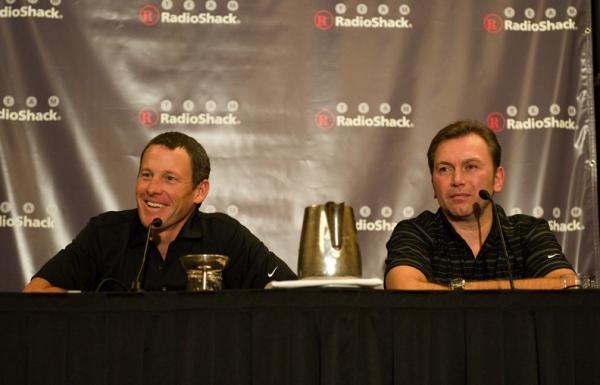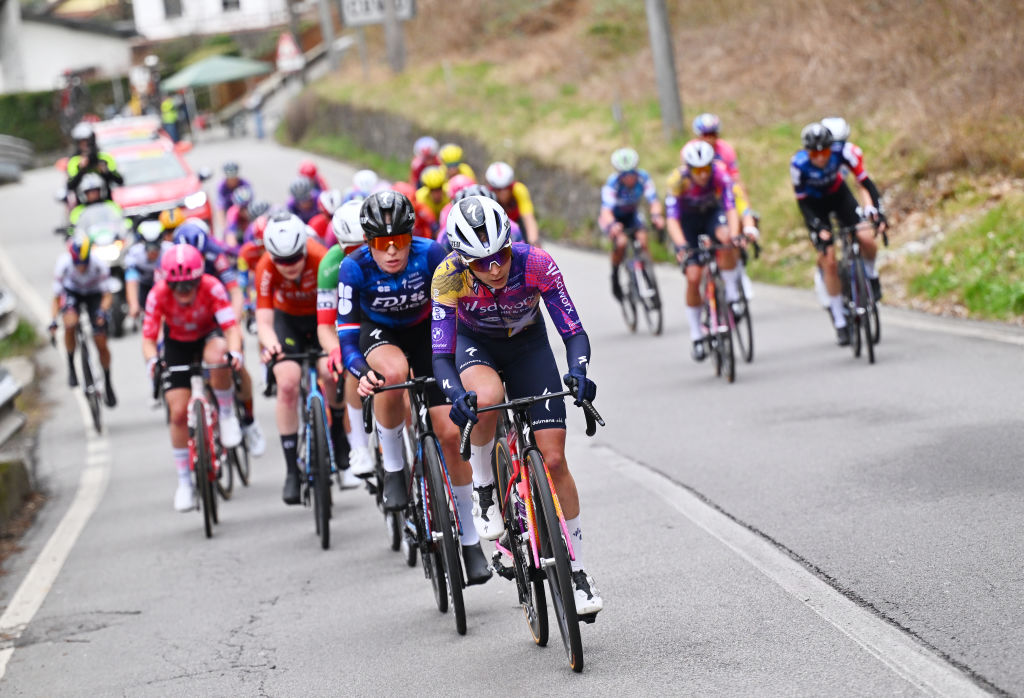Bruyneel on Contador, Armstrong and Le Monde’s accusations
RadioShack boss sets the record straight
The latest race content, interviews, features, reviews and expert buying guides, direct to your inbox!
You are now subscribed
Your newsletter sign-up was successful

During an online chat with the readers of Spanish daily El Mundo that he described on his Twitter page as “interesting”, Johan Bruyneel denied reports that Alberto Contador had had to buy his own equipment as he battled to win the Tour de France this year. Asked straight up whether Contador had had to buy wheels out of his own pocket, Bruyneel responded: “That’s not right. The truth is I don’t know where that information came from. I can guarantee you that the members of the team, and particularly the team leaders, used the same equipment.”
Then asked whether he considered Contador as a “rebel” for not following team orders, Bruyneel replied: “No, he’s not a rebel cyclist, he’s a cyclist who reacts more on how he is feeling. And he’s always the one who knows best when his legs feel good and when they don’t. I don’t consider him a rebel at all.”
Subsequently asked about how he had managed to control all of the egos within the Astana team, Bruyneel explained: “I’ve got one rule for not only dealing with egos but for sorting out problems. The majority of problems that we think are going to occur can be resolved before they do for the simple reason that the sport itself is the most powerful arbiter. The most important thing to do is to keep things calm and put across the idea that the road will decide on everyone’s place. What you need to ensure this is stick to the principal goal – that the team’s objectives are paramount. If you can do this there is no need to worry.
“I lived through the Tour with Lance [Armstrong], Alberto, Levi [Leipheimer] and Andreas [Klöden]. We were racing to win the Tour and we had to make sure that other teams didn’t take advantage of our strength. But I wasn’t worried because I knew that in the end the strongest rider was going to win and that was Alberto.”
Bruyneel was also quizzed on the veteran status of his three major tour leaders at the new RadioShack team, where Armstrong, Klöden and Leipheimer will all be over 35 when the 2010 Tour starts. Bruyneel insists, though, that age won’t be a problem. “Age is not something I worry too much about,” he said. “In endurance sports like cycling advancing years can even be an advantage. They may not have the spark of a young rider, but older riders have experience on their side and when the mind is still sharp and you are still motivated it has been shown that you can still compete at a very high level even when you’re into your late 30s.”
Bruyneel also revealed that he isn’t in the least bit worried about the recent report in French daily Le Monde that the Astana team is under investigation following the seizure of blood transfusion equipment during the Tour that was allegedly in the team’s possession. “I’m not worried about that at all because there’s nothing in it: they can spend years looking into it and they won’t find anything.
"The fact that these people don’t take an objective position leaves me with a bitter taste. I don’t know where all this comes from. We’ve received no official notification… it’s a fixation, they’re just determined to find something. We were tested twice as much as any other team on the Tour and they are not happy because they didn’t find anything. But I’m not worried.”
The latest race content, interviews, features, reviews and expert buying guides, direct to your inbox!
Less contentiously, the Belgian team manager was asked about what he would change in cycling and gave his opinion on how the sport is run and the advance of technology. “I’d be more open to technological advances, they should not be reined in although you should always take safety limits into consideration. The current limits are strict on position, the weight of the bike…” he explained.
Moving on to the sport’s financial issues, Bruyneel commented: “I would bring in a financial model similar in Formula 1, tennis or football. In order to boost the profile of a sport you shouldn’t have everyone going off in different directions: the teams, the organisers, the federations. For example, look at television rights. In other sports there is a system in place that ensures these are shared out. But in this sport, the teams and the organisers are always dependent on sponsors and if they pull out then teams and races disappear.”
Peter Cossins has written about professional cycling since 1993 and is a contributing editor to Procycling. He is the author of The Monuments: The Grit and the Glory of Cycling's Greatest One-Day Races (Bloomsbury, March 2014) and has translated Christophe Bassons' autobiography, A Clean Break (Bloomsbury, July 2014).
